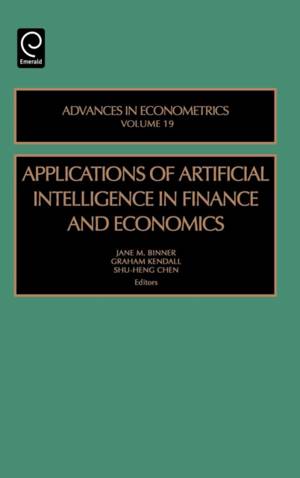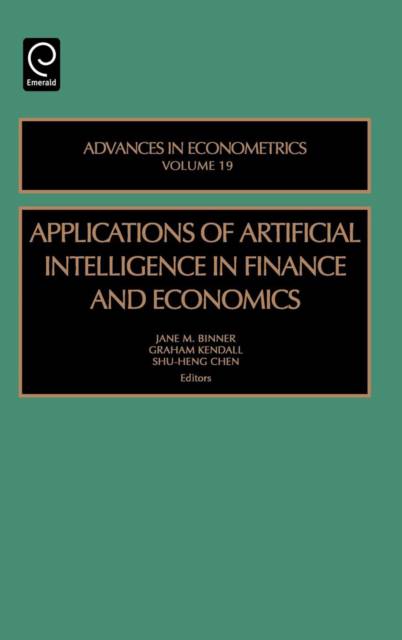
Bedankt voor het vertrouwen het afgelopen jaar! Om jou te bedanken bieden we GRATIS verzending (in België) aan op alles gedurende de hele maand januari.
- Afhalen na 1 uur in een winkel met voorraad
- In januari gratis thuislevering in België
- Ruim aanbod met 7 miljoen producten
Bedankt voor het vertrouwen het afgelopen jaar! Om jou te bedanken bieden we GRATIS verzending (in België) aan op alles gedurende de hele maand januari.
- Afhalen na 1 uur in een winkel met voorraad
- In januari gratis thuislevering in België
- Ruim aanbod met 7 miljoen producten
Zoeken
Applications of Artificial Intelligence in Finance and Economics
€ 265,95
+ 531 punten
Omschrijving
Artificial intelligence is a consortium of data-driven methodologies which includes artificial neural networks, genetic algorithms, fuzzy logic, probabilistic belief networks and machine learning as its components. We have witnessed a phenomenal impact of this data-driven consortium of methodologies in many areas of studies, the economic and financial fields being of no exception. In particular, this volume of collected works will give examples of its impact on the field of economics and finance. This volume is the result of the selection of high-quality papers presented at a special session entitled 'Applications of Artificial Intelligence in Economics and Finance' at the '2003 International Conference on Artificial Intelligence' (IC-AI '03) held at the Monte Carlo Resort, Las Vegas, Nevada, USA, June 23-26 2003. The special session, organised by Jane Binner, Graham Kendall and Shu-Heng Chen, was presented in order to draw attention to the tremendous diversity and richness of the applications of artificial intelligence to problems in Economics and Finance. This volume should appeal to economists interested in adopting an interdisciplinary approach to the study of economic problems, computer scientists who are looking for potential applications of artificial intelligence and practitioners who are looking for new perspectives on how to build models for everyday operations. There are still many important Artificial Intelligence disciplines yet to be covered. Among them are the methodologies of independent component analysis, reinforcement learning, inductive logical programming, classifier systems and Bayesian networks, not to mention many ongoing and highly fascinating hybrid systems. A way to make up for their omission is to visit this subject again later. We certainly hope that we can do so in the near future with another volume of "Applications of Artificial Intelligence in Economics and Finance".
Specificaties
Betrokkenen
- Uitgeverij:
Inhoud
- Aantal bladzijden:
- 292
- Taal:
- Engels
- Reeks:
- Reeksnummer:
- nr. 19
Eigenschappen
- Productcode (EAN):
- 9780762311507
- Verschijningsdatum:
- 14/12/2004
- Uitvoering:
- Hardcover
- Formaat:
- Genaaid
- Afmetingen:
- 162 mm x 233 mm
- Gewicht:
- 485 g

Alleen bij Standaard Boekhandel
+ 531 punten op je klantenkaart van Standaard Boekhandel
Beoordelingen
We publiceren alleen reviews die voldoen aan de voorwaarden voor reviews. Bekijk onze voorwaarden voor reviews.








